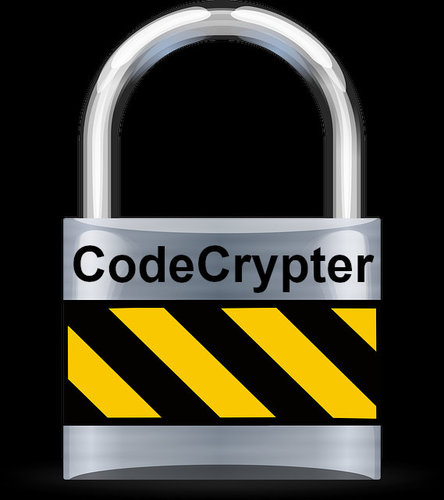Encryption and hash
8 files
-
CryptoNG UDF - Cryptography API: Next Generation
By TheXman
Encryption / Decryption / Hashing / Signing
Purpose
Cryptography API: Next Generation (CNG) is Microsoft's long-term replacement for their CryptoAPI. Microsoft's CNG is designed to be extensible at many levels and cryptography agnostic in behavior. Although the Crypt.au3 UDF lib that is installed with AutoIt3 still works well, the advapi32.dll functions that it uses have been deprecated. In addition the Crypt.au3 UDF lib, as it is currently written, has a very limited ability to decrypt AES data that was not encrypted using Crypt.au3 functions. That is because Crypt.au3 functions do not allow you to specify an actual key or initialization vector (IV). It only lets you specify data to be used to derive a key and uses a static IV. This UDF was created to offer a replacement for the deprecated functions used by Crypt.au3. According to Microsoft, deprecated functions may be removed in future release. It was also created to allow more flexibility and functionality in encryption/decryption/hashing/signing and to expand the ability for users to implement cryptography in their scripts.
Description
This UDF implements some of Microsoft's Cryptography API: Next Generation (CNG) Win32 API functions. It implements functions to encrypt/decrypt text and files, generate hashes, derive keys using Password-Based Key Derivation Function 2 (PBKDF2), create and verify signatures, and has several cryptography-related helper functions. The UDF can implement any encryption/decryption algorithms and hashing algorithms that are supported by the installed cryptography providers on the PC in which it is running. Most, if not all, of the "magic number" values that you would commonly use to specify that desired algorithms, key bit lengths, and other magic number type values, are already defined as constants or enums in the UDF file.
To flatten the learning curve, there is an example file that shows examples of all of the major functionality. This example file is not created to be an exhaustive set of how to implement each feature and parameter. It is designed to give you a template or guide to help you hit the ground running in terms of using the functions. I have tried to fully document the headers of all of the functions as well as the code within the functions themselves. As of v1.4.0, there is also a Help file that includes all of the functions, with examples.
Current UDF Functions
Algorithm-Specific Symmetric Encryption/Decryption Functions _CryptoNG_AES_CBC_EncryptData _CryptoNG_AES_CBC_DecryptData
_CryptoNG_AES_CBC_EncryptFile _CryptoNG_AES_CBC_DecryptFile
_CryptoNG_AES_ECB_EncryptData _CryptoNG_AES_ECB_DecryptData
_CryptoNG_AES_GCM_EncryptData _CryptoNG_AES_GCM_DecryptData
_CryptoNG_3DES_CBC_EncryptData _CryptoNG_3DES_CBC_DecryptData
_CryptoNG_3DES_CBC_EncryptFile _CryptoNG_3DES_CBC_DecryptFile
Generic Symmetric Encryption/Decryption Functions _CryptoNG_EncryptData _CryptoNG_DecryptData
_CryptoNG_EncryptFile _CryptoNG_DecryptFile
Hashing Functions _CryptoNG_HashData _CryptoNG_HashFile
_CryptoNG_PBKDF2
Asymmetric (Public/Private Key) Cryptography Functions _CryptoNG_ECDSA_CreateKeyPair _CryptoNG_ECDSA_SignHash _CryptoNG_ECDSA_VerifySignature
_CryptoNG_RSA_CreateKeyPair _CryptoNG_RSA_CreateKeyPairEx _CryptoNG_RSA_EncryptData _CryptoNG_RSA_DecryptData _CryptoNG_RSA_SignHash _CryptoNG_RSA_VerifySignature
Misc / Helper Functions _CryptoNG_CryptBinaryToString _CryptoNG_CryptStringToBinary
_CryptoNG_GenerateRandom
_CryptoNG_EnumAlgorithms _CryptoNG_EnumRegisteredProviders _CryptoNG_EnumKeyStorageProviders
_CryptoNG_LastErrorMessage
_CryptoNG_Version
Related Links
Cryptography API: Next Generation - Main Page
Cryptography API: Next Generation - Reference
Cryptography API: Next Generation - Primitives
Cryptography API: Next Generation - Cryptographic Algorithm Providers
1,628 downloads
- encryption
- decryption
- (and 3 more)
-
(0 reviews)
0 comments
Updated
-
CodeScannerCrypterBundle
By RTFC
The CodeScannerCrypterBundle (ca. 2.9 MB unzipped) contains the following UDFs and utilities:
CodeScanner: analyse AutoIt script structure and content, identify potential issues, generate MCF data files CodeCrypter: front-end GUI for the MCF library, for script encryption (without storing the decryption key(s) in the script!) MetaCodeFile UDF (MCF library): for analysis and user-defined alterations of AutoIt script structure and content MCFinclude.au3: #include this UDF in any AutoIt script that you wish CodeCrypter to process CryptoNG, by TheXman; encryption UDF using Bcrypt dll calls (32/64-bit; various algorithms) StoreCCprofile.au3/readCSdatadump.au3/helloworld.au3: auxiliary utilities and example script HowToCodeCrypt.pdf: a simple guide in five steps CodeCrypterFAQ.pdf: questions and answers, partly based upon exchanges in the CodeCrypter thread. MetaCodeTutorial.pdf: the MCF engine explained; useful for encryption, GUI translation, code translation, and much more... Please follow the links for additional information.
1,581 downloads
(0 reviews)0 comments
Updated
-
Ward's AutoIt Machine Code Algorithm Collection
By argumentum
AutoIt Machine Code Algorithm Collection
By Ward, November 11, 2010 in AutoIt Example Scripts
Posted November 11, 2010 (edited) I have already published a lot of AutoIt UDF about algorithm, but all of them only support 32 bits or so called X86 system. Recently I got a computer with Windows 7 64 bits, so I finally added X64 support to most of my old projects. Besides, I also added some new. For example, some compression algorithm and SHA3 Candidates.
Following are the algorithms list:
Checksum CRC16 CRC32 ADLER32 Compression FastLZ LZF LZMA LZMAT MiniLZO QuickLZ Encode Base64 ARC4 XXTEA DES AES Hash Checksums (CRC16/CRC32/ADLER32) MD2 MD4 MD5 SHA1 SHA2 (SHA224/256/384/512) SHA3 Candidates BLAKE BMW (Blue Midnight Wish) CUBEHASH ECHO SHABAL SKEIN Some points to mention:
All of the subroutines have one or more examples to demonstrate the usage. Since the function and usage of subroutine are easy to understand. A complete subroutines and parameters list are unavailability now. Sorry for my lazy. All of the subroutines here invoked by Lazycat's method (through CallWindowProc API). My MemoryDLL UDF is not necessary this time. Although MemoryFuncCall (part of MemoryDLL) is still good, but inevitably, it is slower than CallWindowProc. Some subroutines have the same name with my old machine code version UDF. But for some reason, I rearrange the position of the parameters. Please not mix up. If you notice, yes, checksums are duplicated. But they receive different parameters. One is the old style, and another use the same interface as other hashes. Choose what you like, but don't use them in the same time. Some algorithm already supported by the standard UDF "Encryption.au3". But I still provide them, because some system lack of the full support of Windows Crypt Library. If you are looking for only one hash algorithm, for example, used in encryption, I suggested "SHABAL_TINY.au3". Although it is a bit slower then SHABAL, but it is smaller, and it supports different size of output (from 32 to 512 bits).629 downloads
- machine code
- algorithm
- (and 3 more)
(0 reviews)0 comments
Submitted
-
CertUtil UDF
By mLipok
It is the fruit of my last job.
You can easily manage certificates in Windows.
Remark: Still beta so please make a comment in Support topic:
697 downloads
(0 reviews)0 comments
Updated
-
(Un)Serialize() in AutoIt (PHP compatible)
By Jefrey
UDF for serializing and unserializing data.
Serializing is converting any data to an easily storable format (you can convert an array to a string to save in a database, then convert it back to array).
426 downloads
(0 reviews)0 comments
Submitted
-
XProtec.au3 (Free) Protect and Get Paid
By Valuater
Previous downloads = 1,000 +/-
Protect and get Paid for.... Your Program
Features:
End user must register.
Automated email notifications to developer.
Trial period.
User license.
Registration price.
Registration reminder.
Automated registration and acceptance of payment. ( your paypal account )
Limited Freeware Option
...Valuater
8)
10,388 downloads
(3 reviews)0 comments
Updated
-
Hashing Library
By FuryCell
WARNING:The code for these UDFs have not been updated in quite some time , and is now incompatible with new versions of both autoit and MD5 deep. As such I reccomed using one of the many other hashing UDFS and/or plug ins available on the forum.
This library lets you generate MD5,SHA1,SHA256,Tiger, and WhirlPool hashes for files and strings.
It contains two functions, _FileHash(), and _StringHash().
To use these UDFs you need the *Deep set of command line utilities which can be downloaded here.
Enjoy.
3,757 downloads
(1 review)0 comments
Updated



